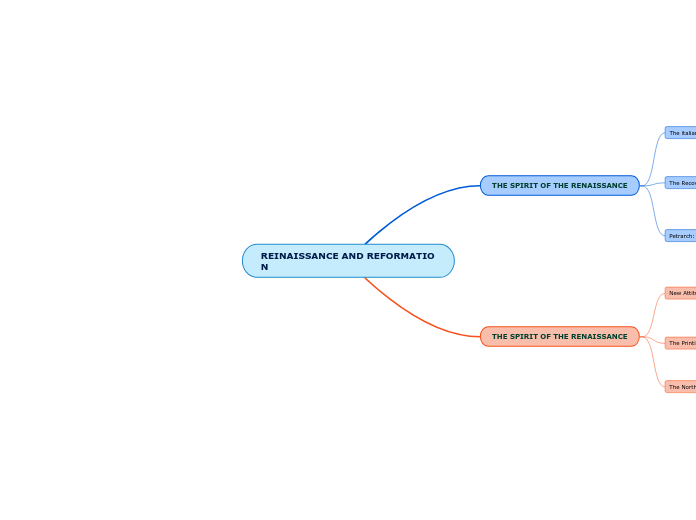REINAISSANCE AND REFORMATIO N
THE SPIRIT OF THE RENAISSANCE
The italian City States
The Renaissance began about 1350 in the northern Italy city-sates.These cities, profiting trade routes between Europe and the Middle East. By the 1300´s they had become the riichest cities in Europe
The Recovery of Classical Culture
Like Lorenzo the Magnificient, many wealthy Italians of the fiftheen century took a keen interest in the ancient Romans. They paid for the restoration of old monuments and works of art. They searched out classical manualscripts in the libraries of European monasteries, often finding in poor condition and entirely forgotten. Greek language and literature, composition, history, and philosophy etc were studied as well, those who read and wrote this subjects were called humanists.
Petrarch: A Pioneer of Hummanism
Franceso Petrarch, an Italian poet born in 1304, led the early development of Renaissance humanism.Regarding Ancient Roman times as a much grander period than his own day, he studied Roman literature and philosophy and encouraged others to do the same.
THE SPIRIT OF THE RENAISSANCE
New Attitudes
Interest in earthly life. Thinkers in the Middle Ages, such as the Scholastics, had triied to use ideas of the ancient writers to support and clarify Church teachings. In contrast, Petrarch and other Renaissance humanists tried to understand the entire civilization of the ancient world, Medieval thinkers had thought of earthly existence chiefly as preparation for an afterlife.
The Printing Press
The more exciting development was the printing press.In the 1450´s Europeans first used movable mental type to print a book. On small pieces of metak they engraved single letters of the alphabet, johann Gutenberg is usually credited with printing the first book, a copy of the Bible.
The Northern Renaissance
Printing helped carry the spirit and ideas of the Renaissance northward from Italy to France, England, Germany, and the Netherlands, admiration of classical civilizatons and respect for individual achievement, northern Europeans were deeply concerned with religious questions as well.
